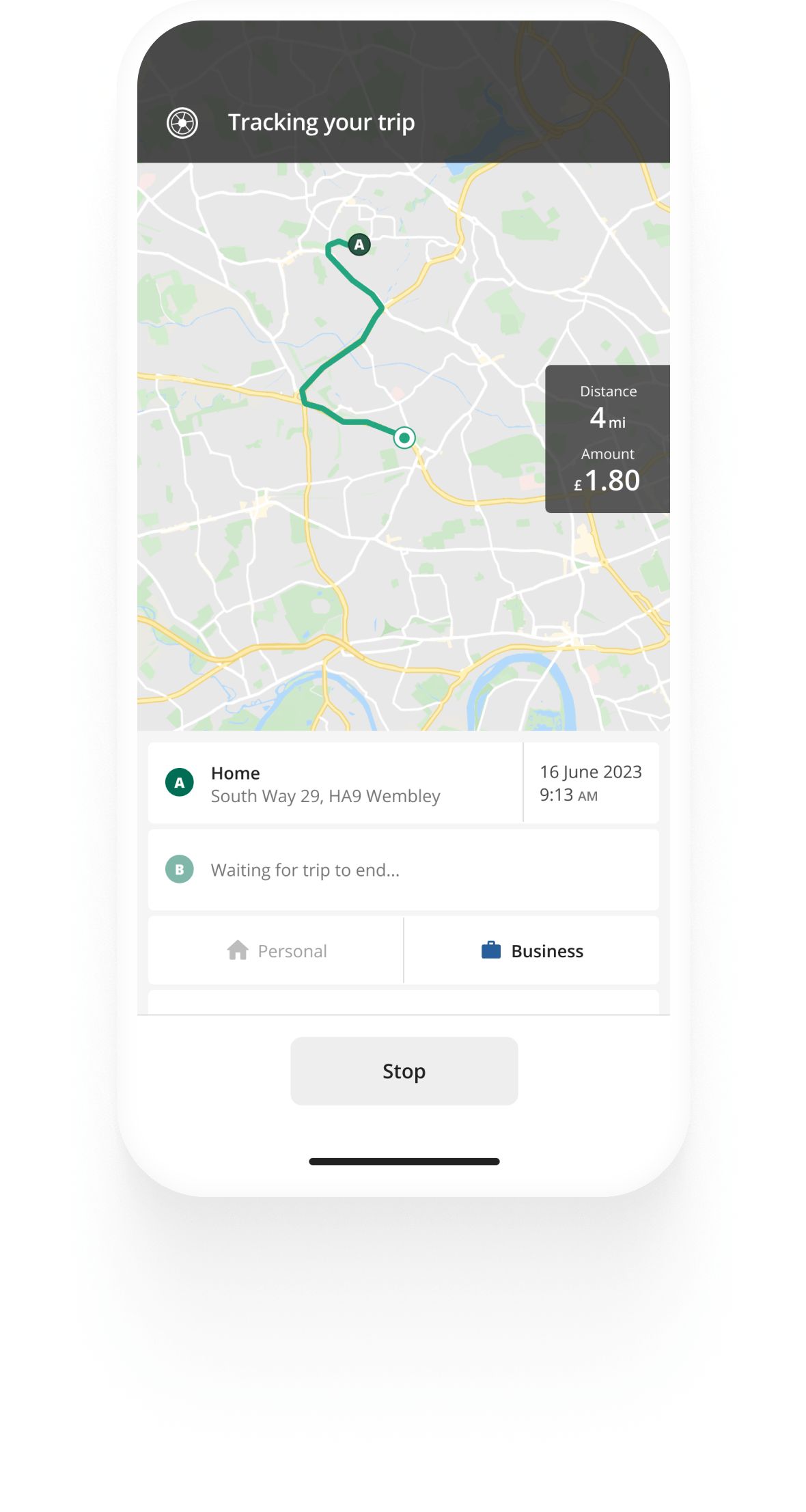Track mileage automatically
Get started
Electric car mileage rates 2024
If you drive a fully electric car for business purposes, you are eligible for a mileage allowance claim under the same conditions as petrol or diesel car users. However, mileage allowance for electric cars will be calculated differently based on your professional situation and car ownership.
This guide provides the current 2024 electric car rates and gives you a quick oversight on claiming mileage on electric cars - whether they’re private or company vehicles.
Mileage rates for privately owned electric cars
If you drive your own electric car for work, your employer can reimburse you with Mileage Allowance Payments (MAPs). They can do so by applying the HMRC-approved business mileage rate, or a lower rate of their choosing.
According to HMRC, employees using private electric cars for work can claim MAPs using the same official rate as petrol or diesel vehicles.
The HMRC electric car mileage rate works out to be 45p per mile for the first 10,000 miles. You can then claim 25p on any mileage after that.
Example: If you’ve driven 13,000 miles, you can claim £4500 for the first 10,000 miles and £750 for the remaining 3,000 miles. Altogether, it grants you a reimbursement of £5250.


Mileage tracking made easy
Trusted by millions of drivers
Automate your mileage log Automate your mileage log

Automatic mileage tracking and HMRC-compliant reporting.
Get started for free Get started for freeMileage rates for company electric cars
The HMRC advisory fuel rate (in this case also referred to as the advisory electric rate) applies to employees using company electric cars. The current advisory rate is set at 7p per mile and is applicable as of 1 December 2024.
HMRC revises the advisory electric rate every 4 months, so it’s recommended that you keep an eye out for any changes. As a rule of thumb, any revised advisory rates are published on the following dates each year:
- 1 March
- 1 June
- 1 September, and
- 1 December
Read our guide on advisory fuel rates if you want to learn more.
Claiming mileage higher than the advisory electric rate
You can claim mileage higher than the advisory electric rate, if you show that your car consumes more than the advisory rate covers, and your employer is willing to reimburse you at a higher rate.
Currently, it’s up to the company whether they apply a higher blanket electric vehicle mileage rate, or implement a system that pays different rates to different employees.
Remember that reimbursement up to the advisory rate is non-taxable. However, if your employer compensates you at a rate higher than 8p, it may count as part of your income and be taxed in the same way. This means you could end up paying Income tax and National Insurance contributions on the excess.
For more specific information on HMRC mileage rules and rates, and to calculate how much mileage you can claim, head to our guide.
FAQ

Tired of logging mileage by hand?
Effortless. HMRC-compliant. Liberating.
Top posts
- HMRC travel expenses guidelines
- HMRC advisory fuel rates 2025
- Automate mileage tracking in healthcare with Driversnote Teams UK
Related posts
Free mileage log book template
Latest update: 7 May 2025 - 2 min read
Whether you're an employee or a business owner, it's crucial to keep good mileage records in a mileage log book.
HMRC Mileage Guide
Latest update: 2 April 2025 - 5 min read
Welcome to our guide on mileage claims and reimbursement in the UK. This guide will walk you through the rules that apply to your situation.
HMRC travel expenses guidelines
Latest update: 16 January 2026 - 2 min read
This guide for employers, employees, and sole-traders offers an overview of what you need to know if you're seeking tax relief or reimbursement for travel expenses.
.svg)

